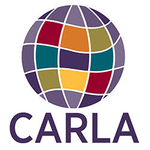
Sixth International Conference on Immersion and Dual Language Education: Connecting Research and Practice Across Contexts
October 20–22, 2016
Hyatt Regency Hotel, Minneapolis, MN, USA
Minority Language Medium Teachers' Perspectives on Translanguaging
Abstract/Description for Paper, Discussion, and Laptop Poster presentations
Translanguaging is generating increasing interest, both as a way of understanding how bilinguals use their languages in daily life, and, more specfically, as a transformative pedagogical practice where bilingual learners develop content knowledge and strengthen their competence in both languages through their systematic use in the classroom. Baker (2011)1 provides a useful account of the development of the practice which derives originally from Welsh-medium education: in this context, given a lack of classroom resources in Welsh, pupils often read texts in English but discussed and wrote about them in Welsh. It was found that systematically varying the ‘input’ and ‘output’ languages benefited pupils’ abilities in both languages. However, this practice sits uneasily with the principles of language immersion education, where exclusive of the target language may be an established goal.
The research reports the perspectives of propsective and practising teachers on the pedagogical value of translanguaging. Findings are drawn from focus group discussions with groups of student teachers, practising primary (elementary) and secondary (middle/ high school) teachers, already working, or about to start work in Gaelic-medium classrooms in urban and island locations in Scotland. Having read in advance Baker’s 2011 account of translanguaging, in English, each group discussed in Gaelic their responses, perspectives, current practices and the future opportunities they identify. The exercise mirrors a translanguaging task, enabling focus group participants to reflect on their own responses to working in this way, as well as considering how this works, or might work, in the classroom.
The findings have a bearing on initial teacher education and professional development for minority language medium educators, indicating how professionals involved in immersion education for language revitalisation can explore the classroom implications of theoretical developments in the field.
1 Baker, C. (2011). Foundations of Bilingual Education and Bilingualism (5th Ed.). Bristol: Multilingual Matters. (Chapter 13)
Program Summary
This paper reports on research with propsective and practicing teachers working in Gaelic-medium education in Scotland, concerning perspectives on translanguaging: some see this as a transformative pedagogical practice where bilingual learners strengthen competence in both languages, while others remain committed to classroom practices exclusively in the target language.
Session Type
Paper/Best Practice Session (1 hour)
Context/program model
Co-Official/Regional Language Immersion
Immersion/Partner Language(s)
Scottish Gaelic (but not langauge specific)
Level
Middle School/Junior High
High School
Lead Presenter/Organizer
Joanna McPake, University of Strathclyde, School of Education,
Role/Title
Reader
State (in US) or Country
GB
Co-Presenters
Fiona O'Hanlon, University of Edinburgh, Moray House School of Education
Role/Title
Chancellor's Fellow
State (in US) or Country
GB